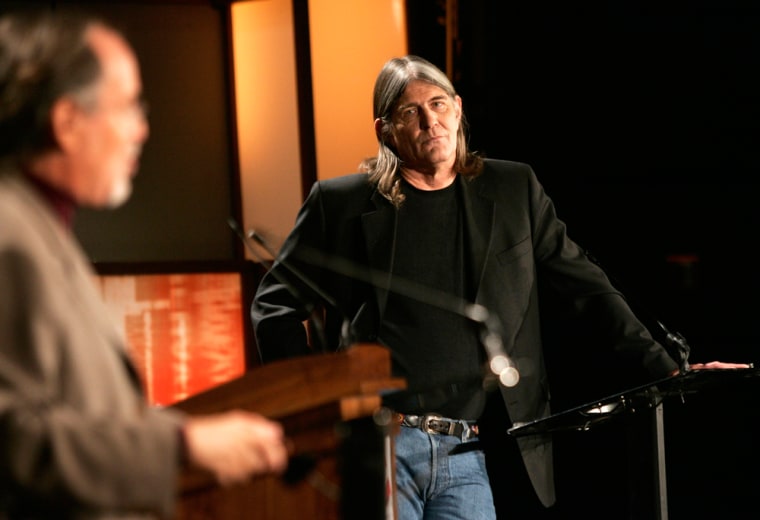The chancellor of the University of Colorado on Monday announced plans to dismiss a controversial tenured professor from the faculty, citing allegations of repeated research misconduct and plagiarism.
“After conducting the due diligence I felt was necessary, I have issued a notice of intent to dismiss for cause to Professor Ward Churchill,” said Philip diStefano, the university's acting chancellor, in a memo circulated to the faculty and staff of the university, based in Boulder, Colo.
DiStefano's announcement follows a June 13 university committee recommendation that Churchill be fired, citing allegations of repeated research misconduct and plagiarism.
Churchill, a tenured professor of ethnic studies, denied the allegations at that time, vowing to fight any dismissal with a lawsuit.
In March 2005, diStefano said that a faculty committee review of allegations against Churchill — including an alleged act of plagiarism in 1997 and more recent allegations of copying artwork and misrepresenting himself as a Native American — had “sufficient merit to warrant further inquiry.”
In a written statement June 13, Churchill dismissed the investigation as an attempt to silence him. He said he “could have done it better” in minor areas on some of the research in question but said he was being held to higher standards than most academics.
“This process has not demonstrated that I engaged in any serious research misconduct but that, after more than a year of painstaking review, those charged with firing me could find nothing more than a few footnotes and questions of attribution to quibble over,” he wrote.
‘Little Eichmanns’ reference
The professor has been controversial for reasons beyond the academic. In an essay written after Sept. 11, 2001, Churchill called some of those who died in the World Trade Center “little Eichmanns,” a reference to Adolf Eichmann, who carried out Adolf Hitler’s plan to exterminate European Jews during World War II.
In the essay, Churchill said the Sept. 11 attacks should have been no surprise because some people at the World Trade Center were part of “a technocratic corps at the very heart of America's global financial empire.”
The essay was largely ignored until January 2005, when it came to light before a scheduled speech at Hamilton College in Clinton, N.Y.
Churchill may request within 10 days that diStefano or University President Hank Brown forward this recommendation to the Faculty Senate Committee on Privilege and Tenure, the chancellor's statement said. If Churchill does, a special panel will hold hearings on the matter and make a recommendation to Brown about whether grounds for dismissal are valid.
In Monday's memo, diStefano also emphasized that the investigation of Churchill's alleged misconduct “should not be casually generalized to others in the department or field of study.”
